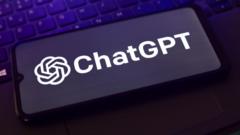In an unprecedented move, a coalition of major Canadian news organizations has filed a legal suit against OpenAI, the creators of the advanced AI chatbot ChatGPT. Among the complainants are notable names such as the Toronto Star, Metroland Media, Postmedia, The Globe and Mail, The Canadian Press, and CBC. This landmark lawsuit alleges that OpenAI is utilizing articles produced by these outlets without proper permission, amounting to a breach of copyright and fair use principles.
The media coalition asserts that journalism serves the public interest, emphasizing that OpenAI’s appropriation of their content for commercial gain is illegal. "Journalism is in the public interest. OpenAI using other companies’ journalism for their own commercial gain is not. It’s illegal,” the group stated in a unified message.
OpenAI has responded, claiming that its models are developed through "publicly available data" and are supported by fair use and international copyright principles. The company contends that it maintains collaborative relationships with news publishers, providing options for attribution and opt-out mechanisms.
In its detailed 84-page filing, the Canadian publishers argue that OpenAI disregards essential copyright protections, such as paywalls and disclaimers designed to prevent unauthorized use of content. "OpenAI regularly breaches copyright and online terms of use by scraping large swaths of content from Canadian media to help develop its products, such as ChatGPT,” the organizations said.
The coalition is demanding punitive damages amounting to C$20,000 (approximately $14,300) for each article allegedly misused, which could lead to total compensation in the billions of dollars. Additionally, they are seeking an order to compel OpenAI to disclose any profits it generated from using their articles, along with an injunction to prevent further misuse.
This lawsuit signifies the first action of its kind in Canada, mirroring similar legal disputes in the United States where companies like the New York Times have taken legal steps against OpenAI. In past months, the New York Times accused OpenAI of obstructing the legal proceedings by erasing essential evidence. Similarly, the Authors Guild—backed by prominent authors including John Grisham—has also claimed copyright infringement against the AI company.
Compounding the situation for OpenAI, recent reports indicate the company has reached a valuation of C$219 billion following its latest funding round, raising questions about the sustainability and ethical implications of deploying AI technologies that utilize copyrighted materials.


















